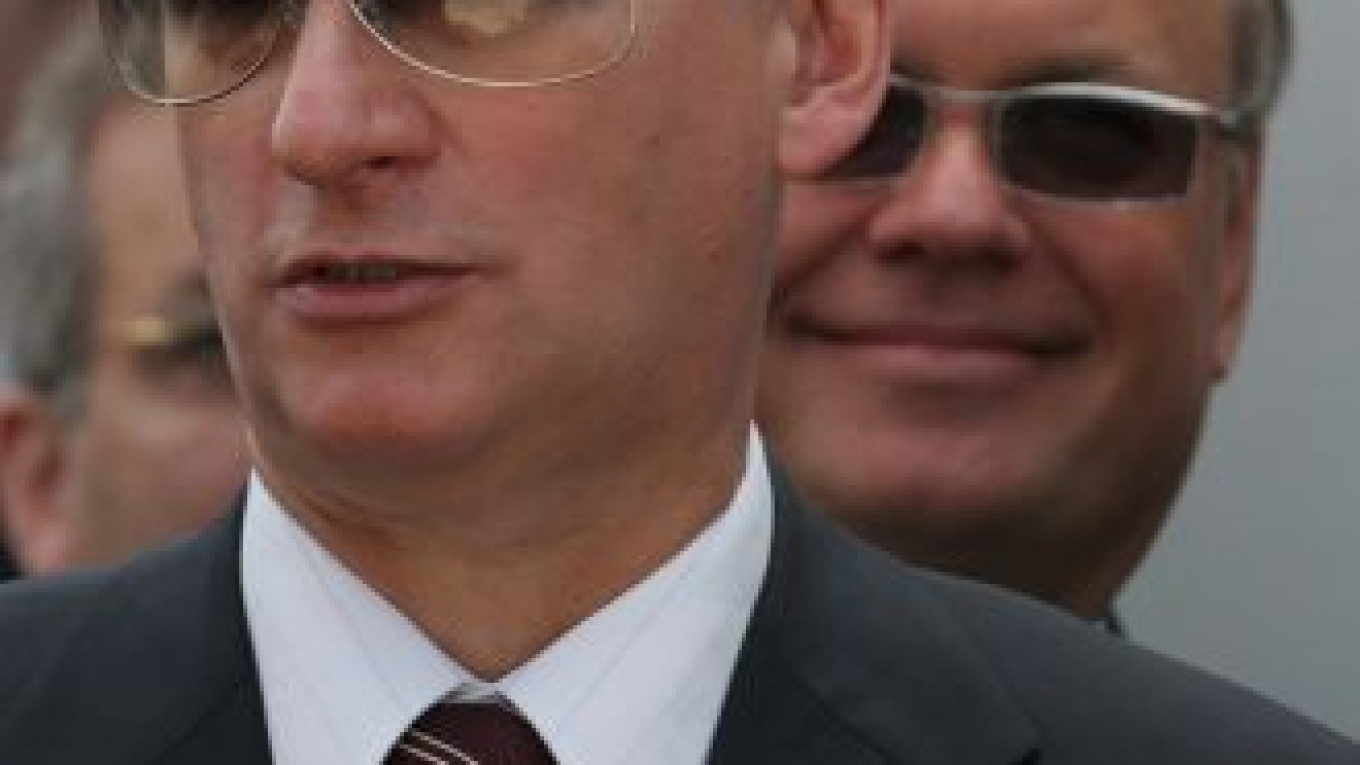President Vladimir Putin's top security adviser said foreign-based websites were being used to foment anti-Kremlin protests, a sign that authorities might be seeking means to hamper access to social media sites used by activists.
Security Council chief Nikolai Patrushev said the Internet was being used by unspecified foreign forces "interested in aggravating the sociopolitical situation."
"Making use of Internet freedom in our country, foreign sites are spreading political speculation, calls to unauthorized protests," said Patrushev, a longtime Putin ally who headed the Federal Security Service during his 2000-2008 presidency, Interfax reported.
"The Russian blogosphere is also subject to outside influence directed at creating and maintaining constant tensions within society," he said.
Putin has accused the United States of backing the opposition.
Opposition leaders and ordinary Russians used Facebook to organize a wave of winter rallies that attracted tens of thousands of people onto Moscow's streets to protest disputed State Duma elections in December.
Since Putin's return to the Kremlin on May 7, activists have relied on Twitter to defy riot police and coordinate sit-ins in the capital's parks.
Critics say the Kremlin's concern over the role of such sites is apparent in a United Russia-drafted bill that would impose fines on Internet users who spread the word about rallies where demonstrators then violate city rules.
While experts say the government has not ruled out blocking access to sites that pose a threat in a moment of crisis, they also say the FSB has few technical means and lacks a strategy for countering the opposition's use of social media sites.
Patrushev's comments were mainly posturing, said Andrei Soldatov, an author and expert on Russia's security forces.
"He wants a strategy on how to prevent the use of social networks as a mobilizing tool, but in fact [the security services] have failed to do this," Soldatov said. "Technically, it seems that they don't know how to counter social networks, and what to do about these mobilization campaigns, especially on Facebook."
Under government regulations, the intelligence services have access to all data transmitted by domestic Internet providers via mandatory interception equipment on their premises, he said, but virtually no control over sites based abroad.
Unlike in China, where the state has control over the communication lines, Russia has thousands of channels and cannot easily limit access to the Web at the source.
Moscow has called for a globally binding UN treaty on cyber security to crack down on Web crime.
Western countries have balked at the proposal, but highly publicized attacks by hacker groups Anonymous and LulzSec, including against U.S. and British government websites, have highlighted the Internet's vulnerabilities.
A Message from The Moscow Times:
Dear readers,
We are facing unprecedented challenges. Russia's Prosecutor General's Office has designated The Moscow Times as an "undesirable" organization, criminalizing our work and putting our staff at risk of prosecution. This follows our earlier unjust labeling as a "foreign agent."
These actions are direct attempts to silence independent journalism in Russia. The authorities claim our work "discredits the decisions of the Russian leadership." We see things differently: we strive to provide accurate, unbiased reporting on Russia.
We, the journalists of The Moscow Times, refuse to be silenced. But to continue our work, we need your help.
Your support, no matter how small, makes a world of difference. If you can, please support us monthly starting from just $2. It's quick to set up, and every contribution makes a significant impact.
By supporting The Moscow Times, you're defending open, independent journalism in the face of repression. Thank you for standing with us.
Remind me later.






